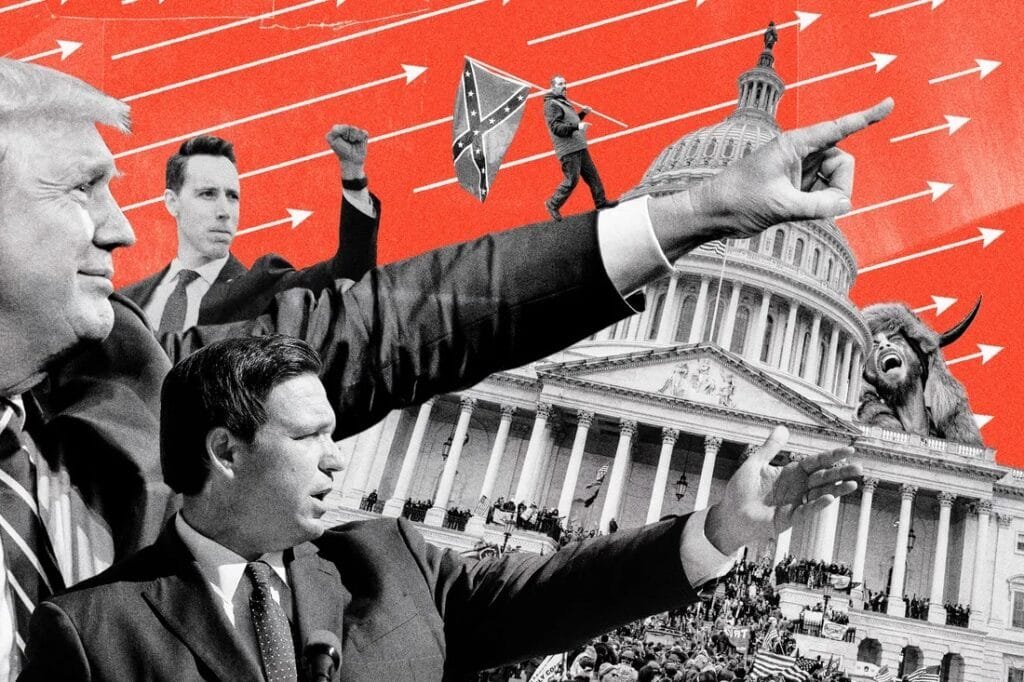Authoritarianism: The Dangers of Political Overreach

Defining Authoritarianism
Authoritarianism refers to a governing system characterized by the concentration of power in a single authority or a small group, often at the expense of individual freedoms and democratic principles. In an authoritarian regime, political power is frequently centralized, with decision-making processes dominated by a select few, thereby limiting the scope for public participation. This concentration of power often results in a lack of accountability, as leaders operate without the checks and balances that are fundamental to democratic systems.
A hallmark of authoritarianism is the suppression of dissent, where opposition voices are marginalized, silenced, or completely eliminated. This suppression can take various forms, including censorship of the media, intimidation of political opponents, and the use of state resources to discredit dissenters. Authoritarian governments may employ propaganda to manipulate public perception and maintain control, often portraying themselves as indispensable for national stability and security.
The erosion of democratic norms is another critical characteristic of authoritarian structures. Practices such as undermining the judiciary, manipulating electoral processes, and curtailing political freedoms serve to entrench the power of authoritarian leaders. Notable historical examples include regimes like those of Adolf Hitler in Nazi Germany and Joseph Stalin in the Soviet Union, where power was ruthlessly consolidated, leading to widespread human rights abuses and societal repression.
In contemporary politics, authoritarian practices can be identified in various forms, from the rise of populist leaders who challenge traditional democratic norms to emerging trends in nations where political pluralism is increasingly sidelined. Such developments are concerning, as they may lead to a regression of democratic values and a renewed emphasis on autocratic governance. Understanding the defining characteristics of authoritarianism is essential to recognizing its dangers and the implications it poses for future political trends globally.
Withholding Funding and Its Implications
The act of a president withholding funds that have been appropriated by Congress raises significant constitutional questions regarding the balance of power between the legislative and executive branches. This potential overreach can undermine the principles of democracy by disrupting the intended system of checks and balances. According to the U.S. Constitution, Congress holds the power of the purse, meaning that only the legislative branch can authorize expenditure of federal funds. When a president unilaterally decides to withhold these funds, it constitutes a serious disregard for the legislative authority because it effectively nullifies the decisions made by Congress.
Several historical precedents highlight the tensions that arise when executive power encroaches upon Congressional authority regarding funding. One notable case occurred during the administrations of Presidents Richard Nixon and Ronald Reagan, both of which faced scrutiny for their use of appropriated funds. Legal challenges emerged, highlighting the necessity for adherence to the doctrine of separation of powers. Furthermore, in 1983, the Supreme Court ruled in the case of Immigration and Naturalization Service v. Chadha, affirming that legislative oversight cannot be bypassed, thereby reinforcing Congressional supremacy in budgetary matters.
The implications of such actions can be dire, leading to a deterioration of trust in government institutions. When a president withholds funding, it can hinder essential services and programs that millions rely upon, thereby affecting the day-to-day lives of citizens. In addition, this practice can incite partisanship and conflict between branches of government, destabilizing the political environment and leading to a breakdown in governance. The repercussions of allowing executive overreach in funding are profound, as it threatens the very foundations of democratic accountability and integrity, raising concerns over the future of political processes in the United States.
Threats to Judicial Independence
Judicial independence is a foundational element of any democratic society, acting as a safeguard against the overreach of political authority. When a president threatens to impeach judges, this undermines the essential separation of powers, with potential ramifications that extend far beyond the courtroom. An independent judiciary serves to uphold the rule of law, protect individual rights, and ensure that justice is administered without bias. When political leaders undermine this independence, they introduce an acute risk to democratic processes.
The implications of threatening judges with impeachment can be profound. Firstly, such actions can create an atmosphere of fear and intimidation among judges, compelling them to consider political consequences when making legal decisions. This climate may lead to self-censorship, where judges consciously or unconsciously modify their rulings to align more favorably with the political preferences of those in power, a direct violation of judicial neutrality. Over time, this erosion of judicial authority risks transforming courts into mere extensions of the executive branch, thereby compromising the integrity of legal institutions.
Historically, instances of judicial intimidation have revealed patterns that echo through time. In various countries, political leaders have sought to undermine judicial authority to consolidate power, ultimately leading to a decline in democratic governance. A lack of judicial independence can result in the marginalization of dissenting voices and the enforcement of laws and policies that infringe upon individual freedoms. The broader implications of these threats highlight a dangerous precedent, wherein the judiciary, designed to check governmental power, becomes subordinate to it.
In essence, the threats posed to judicial independence by political figures seeking to influence or intimidate the judiciary call into question the very essence of democracy. Establishing a resilient and independent judicial system is paramount to maintaining a balanced government that respects and upholds the rule of law.
Attacks on Free Press and Public Discourse
The free press serves as a cornerstone of democracy, facilitating open dialogue and providing citizens with diverse perspectives on governance and societal issues. Recent trends have raised alarm bells regarding the relationship between political leaders and media entities, particularly when a president attempts to remove licenses from outlets that offer critical coverage. Such actions not only infringe upon press freedom but also reflect a broader authoritarian tendency to stifle dissent. Historical context highlights that throughout many democratic societies, press freedom has endured attacks, often in the face of political pressure or socio-economic challenges.
In examining contemporary media relations with government, it is crucial to recognize how these dynamics influence public discourse. A free press ensures that various viewpoints are represented in society, allowing for an informed electorate. When political figures target media outlets for their critical reporting, they undermine the integrity of journalism, potentially leading to a chilling effect on reporters who may fear repercussions for uncovering uncomfortable truths. This erosion of press freedom can significantly diminish citizen engagement, as lack of access to varied information reduces voters’ ability to make informed decisions in a democratic society.
The current landscape reveals heightened tensions between media and political leaders, with accusations of “fake news” and “biased reporting” frequently employed as tools to delegitimize unfavorable coverage. Such rhetoric is dangerous; it can rally support for authoritarian measures and a less accountable state. As political discourse becomes increasingly polarized, it is imperative to recognize the essential role of a robust and independent media. Citizens must advocate for the preservation of press freedom to ensure a vibrant democracy where public discourse flourishes, enabling a healthy exchange of ideas and constructive critique of governmental actions.




